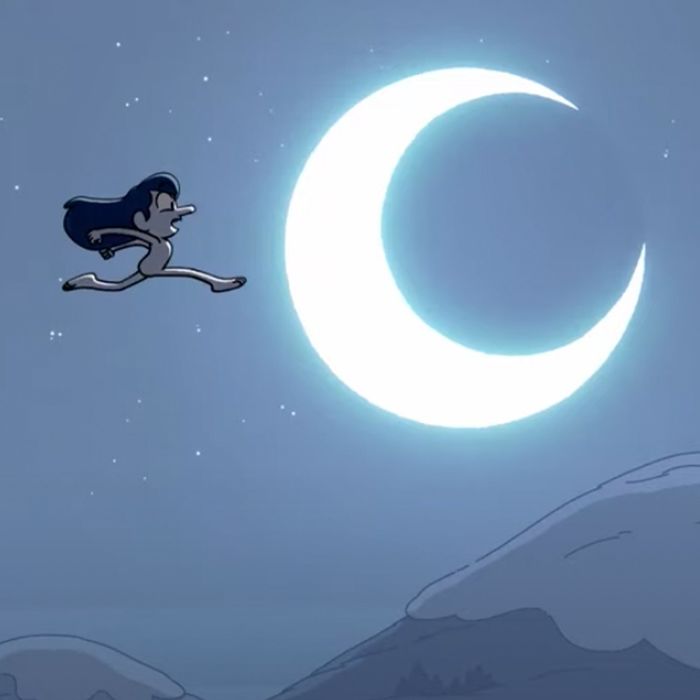‘Maid’ review: an intimate portrait of a mother’s compassion amidst life’s hardships
In her reflection on ‘Maid’, Zoe Turoff praises the show’s portrait of a poverty-stricken mother’s compassion for her daughter
Content Note: This article contains mentions of domestic violence, addiction and mental health difficulties
This striking adaptation of Stephanie Land’s memoir, Maid: Hard Work, Low Pay and a Mother’s Will to Survive (2019) isn’t just another series fresh off the Netflix conveyor belt. A harrowing yet tender portrait of a mother struggling to support herself and her daughter after fleeing an emotionally abusive relationship, the miniseries is carried by the stunningly emotive performances of real-life mother-daughter duo, Margaret Qualley and Andie MacDowell.
The series opens in the dark as 23-year-old Alex (Margaret Qualley) lies awake next to her boyfriend Sean (Nick Robinson). As he falls asleep, she slips silently out of their mobile home with nothing but her two-year-old daughter, Maddy (Rylea Nevaeh Whittet), and a small bag of possessions in tow. From behind the comfort of our screens, we watch as she embarks on a fraught journey towards independence that spans across ten episodes. During this time Alex and Maddy move nine times, alternating between the domestic violence shelter, her mother’s RV, and, at one point, the house of Alex’s friend Nate (Raymond Ablack), a seemingly typical “nice guy” whose apparent generosity conceals his underlying romantic desire for Alex, hidden under the veneer of altruism.
Far from usual depictions of hardship prone to misery porn, Maid offers up an intimate tale of a mother’s tenacity and the stress of poverty. The show certainly does not shy away from ugly realities; the abuse Alex is subjected to by Sean and her encounters with the staggering ineptitude of government assistance are laid bare on screen, no longer hidden behind closed doors. Yet, the show is also emphatically hopeful. Interspersed between fast-paced scenes of Alex’s struggle for independence are the tender moments she spends with her daughter, Maddy, and the quiet, but rare, moments she finds to escape into her passion for writing.
“Interspersed between fast-paced scenes of Alex’s struggle for independence are the tender moments she spends with her daughter”
Follow Alex as she juggles day-care costs, a gruelling job cleaning houses, and the stresses of her relationships, as told by a riveting cast: Robinson’s performance as Sean is nuanced, and even compassionate — he is at once Alex’s abuser, a villain, but also a man tormented by alcohol addiction, trying desperately to do better for his daughter. As he slips in and out of sobriety, alternating between anger and remorse, we begin to understand the extent of the challenge Alex faces trying to escape his cyclical patterns of behaviour. Meanwhile, MacDowell is captivating as Alex’s mother Paula, a free-spirited artist living with undiagnosed bipolar disorder. MacDowell’s Paula is strong-willed and a powerfully creative person, though at the same time heartbreakingly self-destructive. Alex’s encounters with Paula are often emotional, sometimes explosively so, contrasting Alex’s gentle interactions with Maddy.
“We watch as the very fabric of Alex’s environment appears to overwhelm her”
Set in the fictional town of Port Hampstead, USA, the show was filmed amidst the beaches and woodlands of Greater Victoria, on the southern tip of Vancouver Island. I couldn’t help but notice the pathetic fallacy of the surroundings — the grey skies and dark pines are a moody and at times sinister backdrop for the show. Simple cinematography appeals to our emotions: while Maddy spends time with her father, a silent shot of Alex lying despondently on her bed, staring at the empty spot where Maddy is not, is the perfect example of “showing, not telling” Alex’s despair.
Although on the whole the series opts for a stripped-back aesthetic, the story’s subtlety is enhanced by abstract cinematographic elements that remind us that we are watching events unfold through Alex’s eyes — after all, she appears in every scene of the show. Often, Alex’s financial calculations are shown on screen, sometimes ticking down to negative numbers as she fights to stay afloat. In one episode, during a particularly dark spell in which Alex and Maddy are forced to return to Sean’s home, the direction becomes less realistic and more visually poetic. We watch as the very fabric of Alex’s environment appears to overwhelm her; the couch on which she lies, catatonic and depressed, literally swallows her up, and the surrounding woodland looms ominously over a dark hole from which Alex cannot escape. Moments like this remind us again of Alex’s own imaginative way of interpreting the world around her, expressed through her writing.
Through Alex’s job as the eponymous Maid, she encounters a wide and, at times, amusing array of characters and lifestyles, fuelling her literary creativity. In the words of Alex/Stephanie: “When I think about the house I want for my daughter and me, it’s not big and full of stuff. Our space is a home... because we love each other in it.” I watched this show at the end of Michaelmas term. In the wintry stretch between Black Friday bargains and Christmas spending sprees, Alex’s words seemed pertinent; Maid is a refreshing reminder of all the things, and more importantly all the people, we should never take for granted.
 News / Students form new left-wing society in criticism of CULC3 September 2025
News / Students form new left-wing society in criticism of CULC3 September 2025 News / Cambridge’s tallest building restored to former glory1 September 2025
News / Cambridge’s tallest building restored to former glory1 September 2025 News / Tompkins Table 2025: Trinity widens gap on Christ’s19 August 2025
News / Tompkins Table 2025: Trinity widens gap on Christ’s19 August 2025 News / Student house could become homeless shelter2 September 2025
News / Student house could become homeless shelter2 September 2025 Interviews / GK Barry’s journey from Revs to Reality TV31 August 2025
Interviews / GK Barry’s journey from Revs to Reality TV31 August 2025









